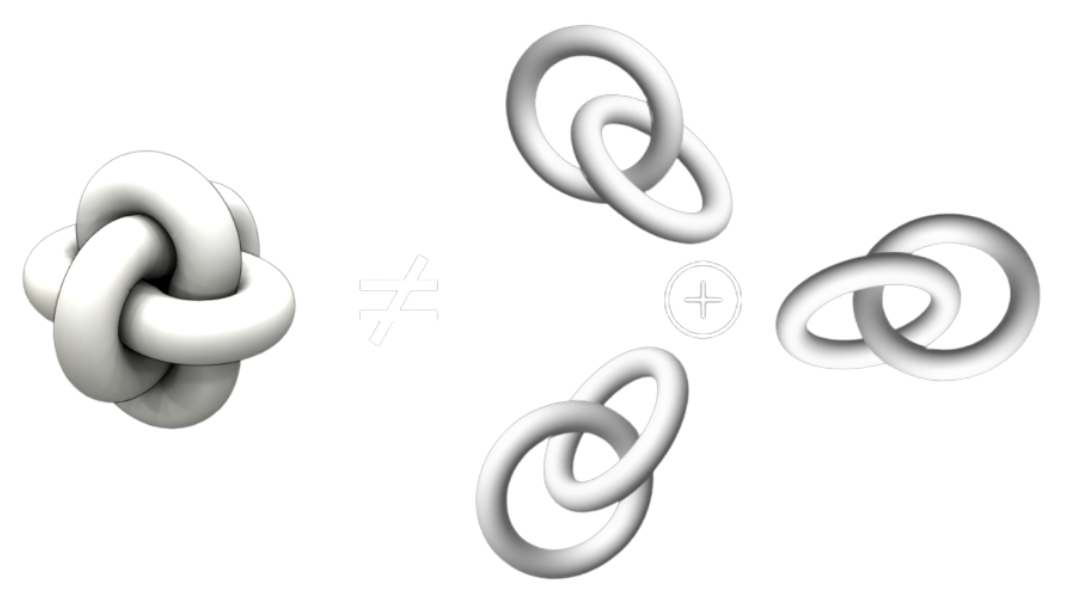Ternary Day Edinburgh 2022
University of Edinburgh, 2 December 2022


A workshop on ternary and higher-arity structures in algebra, geometry and category theory bringing together physicists, mathematicians and computer scientists. This meeting is intended to communicate recent research on non-associative, non-binary, non-sequential or otherwise exotic compositional structures in multiple areas of mathematical sciences and to create the opportunity for cross-pollination between different areas of specialized research.
Logistics
The workshop will take place in Room 4325B at the James Clerk Maxwell Building (King's Buildings Campus, UoE). We will be meeting in the Mathematics common room (5th floor in JCMB) at 10:00 for coffee and we will start the programme at 10:30. Talks should aim to be ~30 minutes long. We expect to have plenty of time for questions after the talks and for blackboard discussions during the day. The schedule will be as follows, although exact timings may vary since we would like to encourage informal discussions to take place organically:
10:00 - 10:30 Reception and coffee at the Mathematics Common Room (JCMB, King's Buildings Campus) 10:30 - 12:00 Opening, talk by Bernard Rybolowicz and discussion 12:00 - 13:00 Talk by José Figueroa-O'Farrill and discussion 13:00 - 14:00 Lunch break 14:00 - 15:00 Talk by Anastasia Doikou, coffee and discussion 15:00 - 16:00 Talk by Carlos Zapata-Carratalá and discussion
Talks
On Semiheaps and SemigroupsBernard Rybolowicz
I will introduce the audience to semiheaps and show their links to semigroups. Then I will discuss V. V. Wagner’s result that describes how monoids and semiheaps with biunitary elements are related. To conclude the talk, I will present a generalisation of the Wagner result introduced in my and Carlos Zapata-Carratala’s recent paper.
Novel solutions of the Yang-Baxter equation from (skew) bracesAnastasia Doikou
I will present new non-involutive solutions of the Yang-Baxter equation coming from (skew) braces. These solutions are associated to novel ternary maps inspired by algebraic structures such as heaps and trusses. These solutions greatly generalize the known ones and surprisingly in the case of braces they are not necessarily involutive. Time permitting, I will discuss the connection of these new solutions with quasi-bialgebras.
Indeconstructible metric 3-algebras and supersymmetryJosé Figueroa-O'Farrill
I will report on work by my collaborator Paul de Medeiros (from the University of Stavanger) concerning a new (at least to us) class of metric 3-algebra which, unlike the ones I talked about in the first Ternary Day, do not seem to deconstruct into a metric Lie algebra and a unitary representation. In other words, these do seem to be truly ternary algebras.
The Principle of Diagrammatic Integrity and ChemoidsCarlos Zapata-Carratalá
In this talk I will present the definition of "chemoid" or "abstract chemisty" as motivated by recent findings on groupoids, heapoids and ternary algebras of cubic matrices. We will be using the framework of hypergraph rewriting systems to do so, which will also allow us to cleanly formulate the Principle of Diagrammatic Integrity as a candidate for the general notion of associativity.